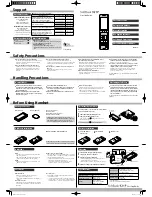
provides the scientific oversight,
obtaining input from experts in
government, industry, and
academic organizations. CTIA-
funded research is conducted
through contracts with
independent investigators. The
initial research will include both
laboratory studies and studies of
wireless phone users. The
CRADA will also include a broad
assessment of additional research
needs in the context of the latest
research developments around
the world.
7. How can I find out how much
radio frequency energy
exposure I can get by using my
wireless phone?
All phones sold in the United
States must comply with Federal
Communications Commission
(FCC) guidelines that limit radio
frequency energy (RF) exposures.
The FCC established these
guidelines in consultation with
the FDA and the other federal
health and safety agencies. The
FCC limit for RF exposure from
wireless telephones is set at a
Specific Absorption Rate (SAR)
of 1.6 watts per kilogram (1.6
W/kg). The FCC limit is
consistent with the safety
standards developed by the
Institute of Electrical and
Electronic Engineering (IEEE) and
the National Council on
Radiation Protection and
Measurement. The exposure limit
takes into consideration the
body’s ability to remove heat
from the tissues that absorb
energy from the wireless phone
and is set well below levels known
to have effects. Manufacturers of
wireless phones must report the
RF exposure level for each model
of phone to the FCC. The FCC
94
Safety Guidelines
















































